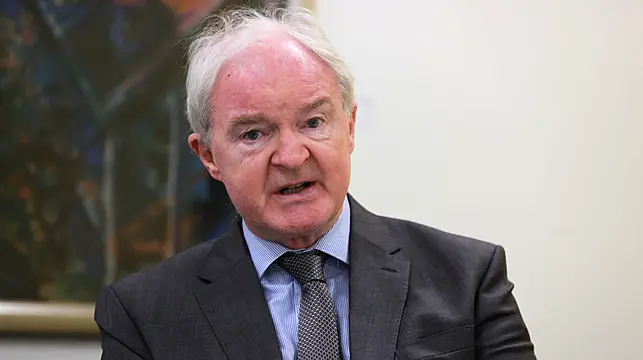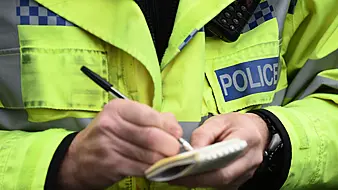A new Troubles legacy commission could have dealt with the Pat Finucane murder case but such a move may have caused a “problem” with the Irish government, the body’s chief commissioner has said.
Sir Declan Morgan told a Stormont Assembly committee that it would have been within the “competence” of the Independent Commission for Reconciliation and Information Recovery (ICRIR) to investigate the collusion-linked loyalist paramilitary murder of the Belfast solicitor in 1989.
The UK government ordered a public inquiry into the murder last week following a long campaign by the Finucane family.
The UK government has turned down requests for public inquiries in other Troubles killings, such as that of murdered GAA official Sean Brown in 1997, arguing that those cases should be dealt with by the ICRIR.

Explaining the rationale, Northern Ireland Secretary Hilary Benn said the Finucane case was “exceptional” because the UK had committed to holding a public inquiry into the circumstances of the murder as part of an international agreement with the Irish government more than 20 years ago.
On Wednesday, Sir Declan told members of the Executive Office committee that failing to order a public inquiry could have undermined the principle of international law.
However, he made clear that his commission would have been capable of taking on the case.
He said he was not aware of any other significant reason, other than the international agreement, that made the case exceptional in the context of Troubles investigations.
Sir Declan, who is Northern Ireland’s former lord chief justice, also challenged the suggestion that public inquiries had more powers than the ICRIR to disclose classified information, highlighting that the Government effectively retained a veto on disclosure in regard to both.
“The Secretary of State can give a ministerial direction as to what is to be disclosed and what isn’t (in a public inquiry),” he said.
“That’s the point about a public inquiry – it doesn’t do what it says on the tin.
“And sometimes what happens is that people go and create expectations with families about things that are going to happen, that can’t happen, and it’s not fair to the families for that to happen.”
In regard to the Finucane case, he added: “The commitment to a public inquiry in relation to Mr Finucane was made about 20 years ago between the two governments.
“It is an intergovernmental commitment. The delivery of that commitment represents an adherence to the concept of the rule of law on an international basis, and if that commitment hadn’t been honoured, then I think it might well have been undermining of the approach to the rule of law.
“But when two governments make a commitment to each other, the expectation is that they will do what they say.”
The ICRIR was created by the Conservative government’s Legacy Act which halted scores of civil cases and inquests into Troubles deaths.
It has powers to look into more than 3,500 killings and can accept requests for the next five years. It has had more than 100 approaches from families since it was set up and has moved into the information recovery stage with eight cases to date.
The new Labour government has vowed to repeal the most contentious aspect of the Legacy Act, the offer of conditional immunity from prosecution for perpetrators, but it has pledged to retain the ICRIR.
Prior to the general election, the Irish Government brought an interstate legal case against the UK, claiming the Legacy Act breached the European Convention on Human Rights (ECHR).
The case remains active, with the Dublin administration awaiting the new UK government to follow through with its repeal pledge before dropping it.
Sir Declan suggested that case was likely a factor in the UK’s considerations ahead of ordering the Finucane public inquiry.
“The ICRIR, in my view, could have dealt with the Finucane case in terms of its competence to do it,” he told the committee.
“I have no doubt about that. But I can certainly see that from the point of view of the Irish government, who are challenging the Act – and implicitly the commission – that for the Secretary of State to refer the matter to us might have been a problem.”
TUV committee member Timothy Gaston asked Sir Declan whether he viewed the Finucane case as “exceptional”.
“Apart from the fact that there was an intergovernmental agreement, I’m not aware of any other significant feature of the Finucane case that springs to mind,” he replied.







